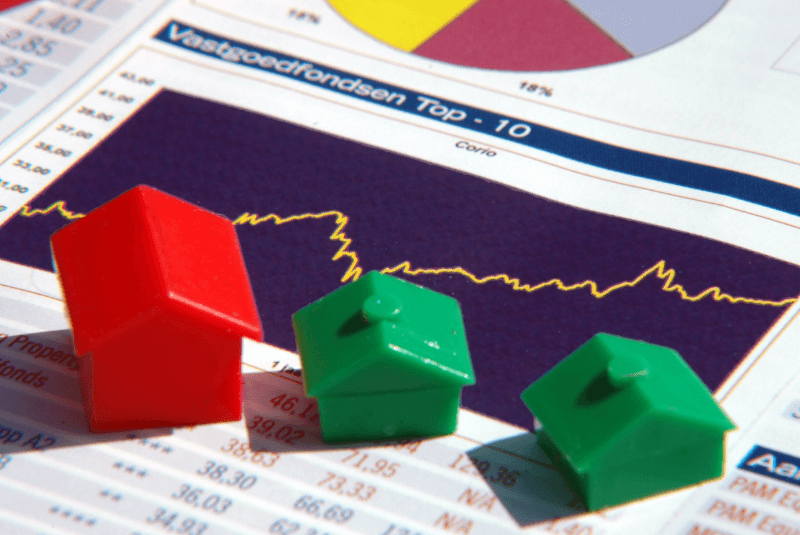
As we peer into the economic landscape of 2023, one question that comes to the minds of homeowners and prospective sellers in Minnesota is, “Will the soaring gas prices have any impact on the housing market?” This inquiry is not without merit, given the interconnectedness of economic sectors and the potential for ripple effects. Changes in gas prices can usher in alterations in consumer behavior, which in turn can influence various markets, including real estate. This article will delve into expert insights and analyses, exploring the possible implications of rising gas prices on the housing market, particularly from the perspective of a home seller in Minnesota.
How Increasing Gas Prices Affect The Real Estate Market
The correlation between gas prices and the real estate market may not be immediately apparent, but they are intricately linked through economic mechanisms. Increasing gas prices often translate to higher transportation costs, impacting both individuals’ commuting expenses and the cost of goods and services. This can lead to a shift in homebuyer preferences.
Impact on Suburban and Rural Real Estate
Historically, higher gas prices have led to a decline in the attractiveness of suburban and rural homes. These areas usually require longer commutes, and as gas prices rise, so do the costs associated with living farther from urban employment centers. Buyers may start to reconsider the suburban dream when their two-car, gas-powered lifestyle becomes significantly more expensive. Instead, they might opt for homes closer to their workplaces or in areas with better public transportation, leading to increased demand and potentially higher prices for urban real estate.
Influence on Inflation and Interest Rates
Rising gas prices also indirectly affect the housing market by contributing to overall inflation. As businesses pay more for transportation and production costs, they usually pass these costs on to consumers. In response, central banks may raise interest rates to curb inflation. Higher interest rates can deter some potential home buyers as it raises the cost of mortgage loans, potentially slowing down the housing market.
Construction Costs and New Housing Supply
Finally, increasing gas prices can inflate the costs of building materials and the transportation of these materials, leading to increased construction costs. This can slow down the construction of new houses, reducing the supply in the market and potentially driving up the price of existing housing stock.
There are many factors at play, and the situation can be highly variable depending on the specifics of the local market in Minnesota. In the next section, we will look closer at the real estate and gas price correlation.
Real Estate and Gas Price Correlation
The correlation between real estate and gas prices is complex and influenced by several factors. Gas prices can indirectly impact the real estate market by altering consumer behavior and influencing economic policies.
When gas prices increase, families and individuals may reconsider their living and commuting arrangements. Areas that are further from employment centers and have longer commute times, such as suburbs or rural areas, could see a decrease in demand. This shift in preference could lead to price depreciation in these areas, while properties in urban areas or locations well-served by public transportation could appreciate in value.
Also, rising gas prices often lead to increased inflation, which in turn, may provoke central banks to raise interest rates to keep the economy balanced. Higher interest rates can make mortgages more expensive and deter potential buyers, causing a slowdown in the housing market.
Furthermore, gas prices can directly affect the cost of building new homes. Higher transportation costs can make raw materials more expensive, increasing the overall cost of construction. This can slow down the pace of new housing development, reducing the supply of homes and potentially causing an increase in the price of existing homes.
However, it’s essential to remember that market dynamics can vary greatly between different regions. For instance, in Minnesota, the impact of rising gas prices on the housing market will depend on various local factors like employment patterns, availability and efficiency of public transportation, and the pace of new construction. Therefore, while these correlations provide a general understanding, a home seller in Minnesota should closely monitor local market trends and consult with real estate professionals to navigate the potential effects of rising gas prices.
Need to Sell Your House Fast?
We make selling your house a simple affair.
Just fill out the form below or give us a call at: (612) 260-5577 to get your free, no-obligation cash offer!
How This Might Impact Pricing and Negotiations
With the rise in gas prices, the real estate market in Minnesota could face some significant shifts in pricing and negotiations. For sellers, understanding these changes will be crucial in strategically pricing homes and negotiating effectively with potential buyers.
Impact on Home Pricing
If gas prices continue to rise, suburban and rural homes in areas far from employment centers or without efficient public transportation might see a decrease in demand, leading to potential price depreciation. Sellers in these areas may need to adjust their pricing expectations accordingly. On the other hand, urban properties may experience increased demand due to their proximity to workplaces and public transportation, potentially causing an appreciation in their value. Sellers in these locations could seize the opportunity to price their homes competitively.
Influence on Negotiations
The increased cost of living due to rising gas prices might make potential buyers more cautious and price-sensitive. They may negotiate harder to offset the increased commuting and living costs. Sellers should be prepared for tougher negotiations and be willing to make concessions to close the deal. Offering incentives like covering closing costs or offering to pay for a year’s worth of gas may make the property more appealing to potential buyers.
Consideration of Cost of Living in Pricing and Negotiations
As the cost of living in Minnesota escalates with rising gas prices, home sellers need to factor this into their pricing and negotiation strategies. If the cost of living becomes significantly more expensive, prospective buyers might have less disposable income for housing, which could lead to downward pressure on home prices.
Ultimately, the exact effects of soaring gas prices on the housing market will depend on various factors, including how long the high gas prices persist. Sellers should stay informed about local market trends, consult with real estate professionals, and be ready to adapt their strategies as the situation evolves.
Are Gas Pricing Affecting The Types of Homes People Are Buying
Changes in gas prices may indeed influence the types of homes people are buying. Consumers may start reconsidering their housing preferences, especially in terms of location, to accommodate for higher transportation costs. Homes located in urban areas or near efficient public transportation are likely to become more desirable, as they can potentially offer lower commuting costs. Conversely, homes in suburban or rural areas that necessitate longer commutes might see a dip in demand.
For homeowners in Minneapolis who find it challenging to sell their properties due to these market dynamics, selling their houses for cash could be a viable option. This approach can expedite the selling process, eliminating the need for mortgage approvals and inspections that traditional sales require. Next, we’ll look at how to sell your house for cash in Minneapolis.
How to Easily Sell a House in Uncertain Times
If you need help to sell your home in Minneapolis, selling your house for cash could be a quick and straightforward solution. Here’s how:
- Reach Out to Cash Buyers: Search for reputable cash buying companies in Minneapolis, such as Mill City Home Buyers, and reach out to them. They will usually provide a fair cash offer after assessing your property.
- Consider the Offer: Evaluate the cash offer considering your specific situation and needs. Remember, the advantage of this approach is the speed and certainty, as you bypass the traditional selling process.
- Close the Deal: If you accept the offer, the ‘We Buy Houses in St. Paul‘ company will handle the paperwork, and you can close the deal at a local title company.
Remember, the goal is to sell your house quickly and efficiently. Although you might not get as much as you would in a conventional sale, you save on realtor commissions and closing costs, and more importantly, you get the certainty of a sale in these uncertain times.

Conclusion
In conclusion, rising gas prices can indeed have a significant impact on the housing market, potentially influencing home pricing, negotiation dynamics, and even the types of homes people are buying. As a home seller in Minnesota, staying informed about these market trends and being ready to adapt your selling strategies will be crucial for success.
Remember, if selling becomes challenging due to these changes, turning to one of the cash home buyers in Minneapolis like Mill City Home Buyers can be an effective option. These companies offer a simplified selling process, eliminating the need for traditional sales procedures that could be more uncertain and time-consuming. Despite the potential challenges caused by rising gas prices, you have the resources and strategies to navigate the housing market and achieve your selling goals.
If you need to sell your house fast and live in the Minneapolis or St. Paul area, don’t hesitate to contact Mill City Home Buyers. Our team of experienced professionals can help you sell your house for cash quickly and efficiently, allowing you to move on to your next chapter.
